2019-20 Events
Spring 2020
After the Corona pandemic made in-person events impossible, we started our new virtual event series CGES Online in April 2020. These events can be found on the 2020-21 event page under Summer 2020. Most CGES Online events were recorded. If available, you will find a link to the recording on the individual event's page, simply click on the event title you are interested in. Find a list of links to all recorded webinars o CGES Online's Echo360 website
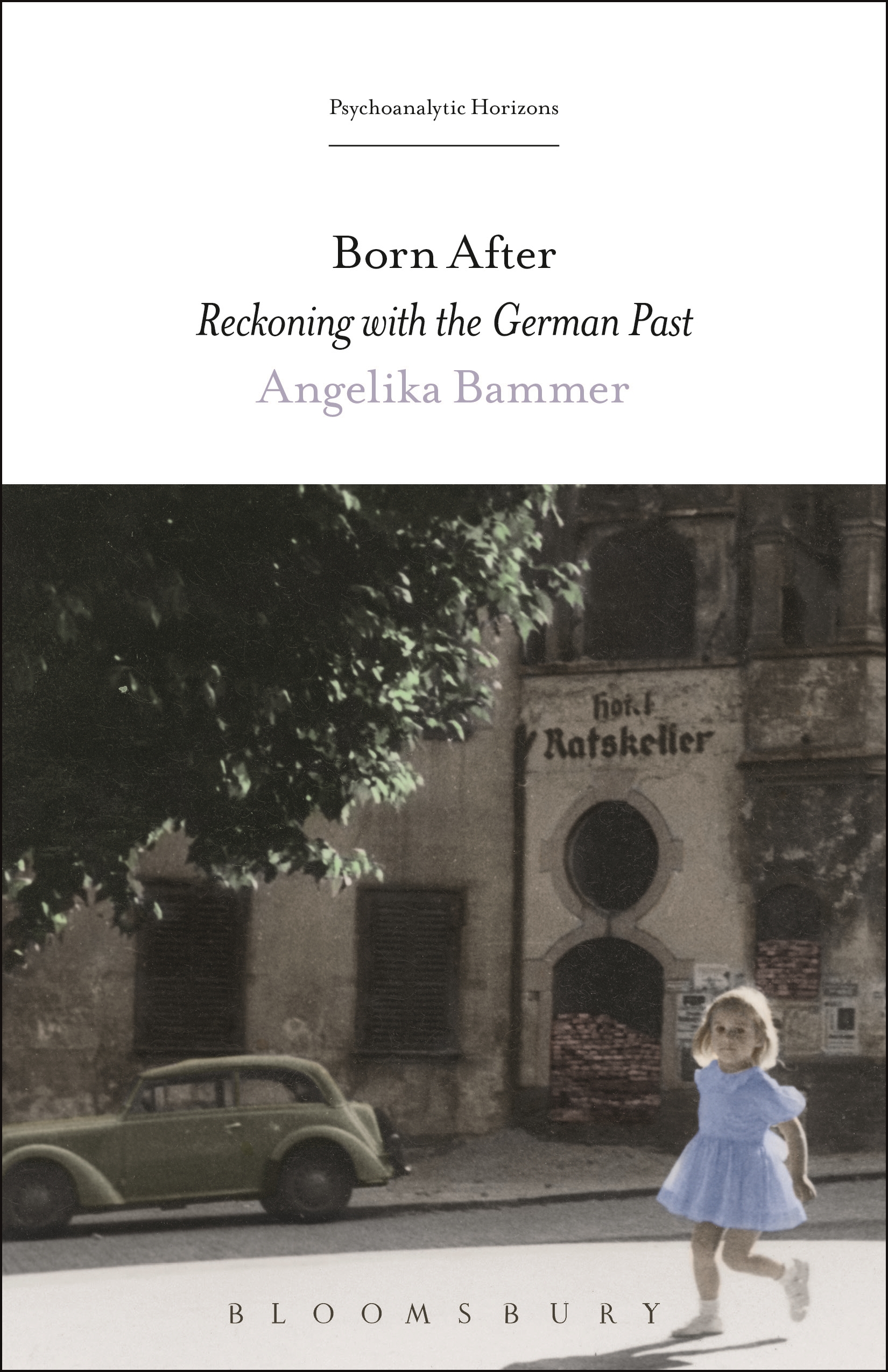
Due to current developments regarding COVID-19, the event has been postponed and will be rescheduled at a later time.
What do we do with pasts we inherit that carry shame? A major and original contribution to thinking about and grappling with the legacies of German and Nazi history, this book reflects on the relationship between history and memory through the personal narrative of a postwar German intellectual. Arguing that the pasts that haunt us are shaped both by the things people did and suffered and the affective traces the past leaves in memory, "Born After" is a powerful meditation on questions of guilt, complicity, loss, and longing. With bracing honesty and without sentimentality, Bammer draws on her own family story to think anew about a history that we have come to accept as familiar. Inflecting questions about history with questions about ethics, her book speaks to all those concerned with historical pasts that remain unreconciled.
Angelika Bammer is Associate Professor of Comparative Literature at Emory University, USA. She is the author of "The Future of Scholarly Writing: Critical Interventions" (Palgrave Macmillan, 2015) and "Partial Visions: Feminism and Utopianism in the 1970s" (Peter Lang, Revised edition, 2015; Routledge, 1st edition, 1991). She is the editor of "Displacements: Cultural Identities in Question" (Indiana University Press, 1994).
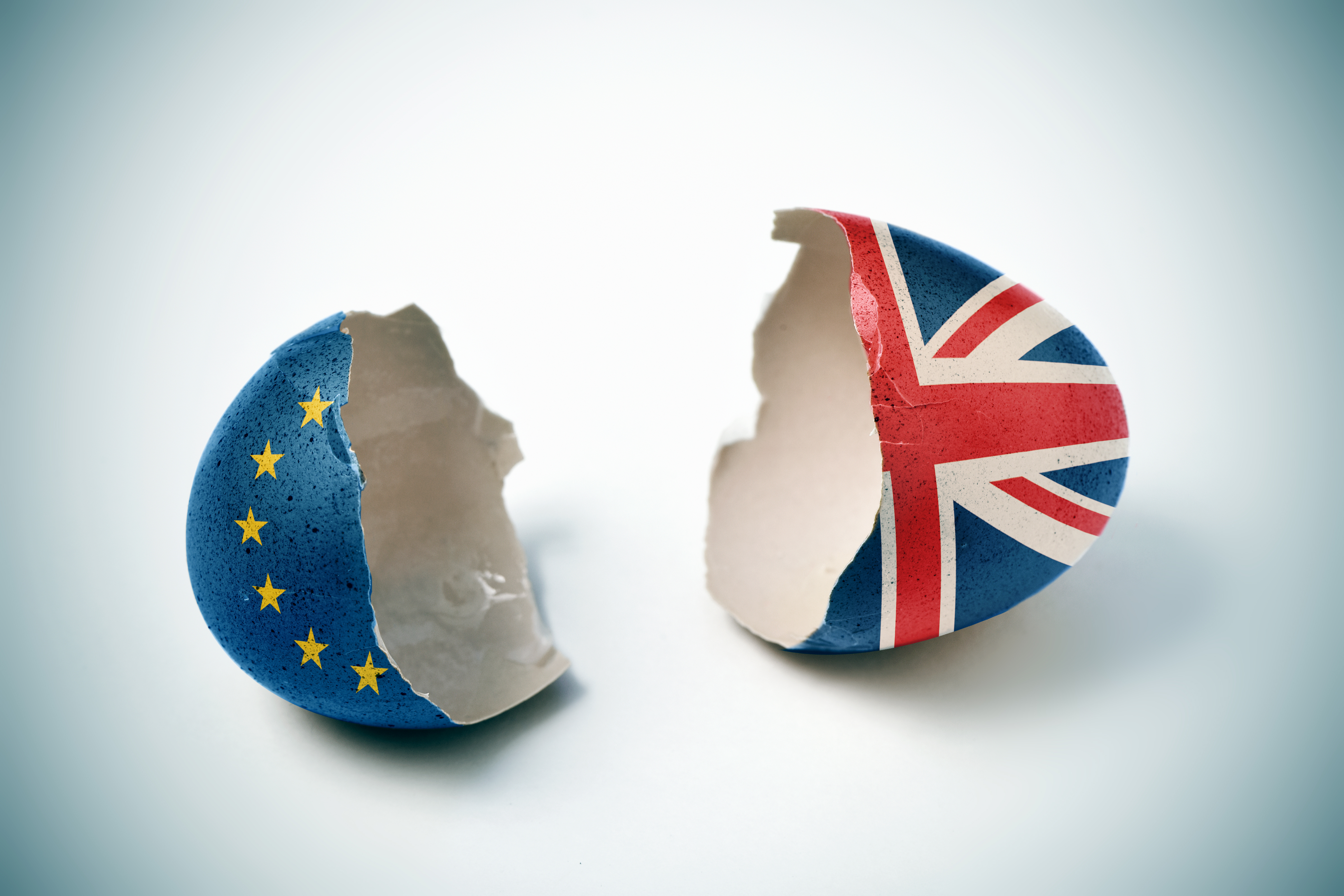
Due to current developments regarding COVID-19, the event has been postponed and will be rescheduled at a later time.
On Jan. 31, 2020, Great Britain officially left the European Union. Prime Minister Boris Johnson delivered what he had promised in his election campaign. But many questions remain unanswered: Will Scotland vote for independence from the UK to rejoin the EU? How will Northern Ireland deal with a European Union border to Ireland? What trade agreements will there be between the UK and the world? What will the UK be like when "the free movement of people" ends, as Home Secretary Priti Patel predicts? What consequences will immigrants face who have made their life in the UK? Will there be further repercussions in Europe, such as other countries voting to leave the European Union? Will Johnson succeed in forging closer ties with the U.S. now?
Robert Kuttner is co-founder and co-editor of The American Prospect and Meyer and Ida Kirstein Professor in Social Planning and Administration at Brandeis University’s Heller School for Social Policy and Management. He is the author of 12 books on politics and economics. His latest is "The Stakes: 2020 and the Survival of American Democracy." He was a longtime columnist for BusinessWeek and for the Boston Globe. In addition to writing for the Prospect, he writes for The New York Review of Books.

March 12, 2020
For many years, so-called "natural" gas was touted as a clean alternative to coal and oil. Not any more. Due to the far more dramatic climate impact of methane, not to mention the many dangers involved in gas infrastructure, scientists and climate activists have been calling for an end to all new fossil fuels, gas included, and climate activists have mounted fights against gas infrastructure across the globe.
This panel will connect the dots between the economic and political impacts of the fracking and pipeline industries, highlighting the fight against the Weymouth Compressor Station here in Massachusetts, and the growing protests against LNG (Liquid Natural Gas) terminals in Northern Germany.
Although many European countries, including Germany and France have implemented bans on fracking, the desire to shut down coal (and in Germany phase out nuclear) while keeping the economy going has led to an increase in gas infrastructure. The North Stream Gas pipeline has become a major source of tension between Germany and the U.S. Meanwhile, Greece, Israel and Cyprus signed an agreement to build an undersea pipeline to ferry natural gas from offshore fields in the eastern Mediterranean to Europe.
Panelists:
- Andy Gheorghiu, Policy Advisor at Food and Water Europe (via Zoom)
- Nathan Phillips, Boston University
- Ya'ara Peretz, Head of Government Relations and Policy at Green Course, Israel (via Zoom)
Moderator: Sabine von Mering, Director, Center for German and European Studies (CGES)
About the panelists:
Ya’ara Peretz is an activist from Israel, working for Green Course as the climate organizer and campaigner. As part of her work with Green Course, she also works with and provides support for the student movement — Strike 4 future Israel — that is leading the school strikes in Israel as part of the Fridays for Future movement. She is also one of the founders of the Extinction Rebellion branch in Israel.
Andy Gheorghiu is a policy advisor at Food and Water Europe.
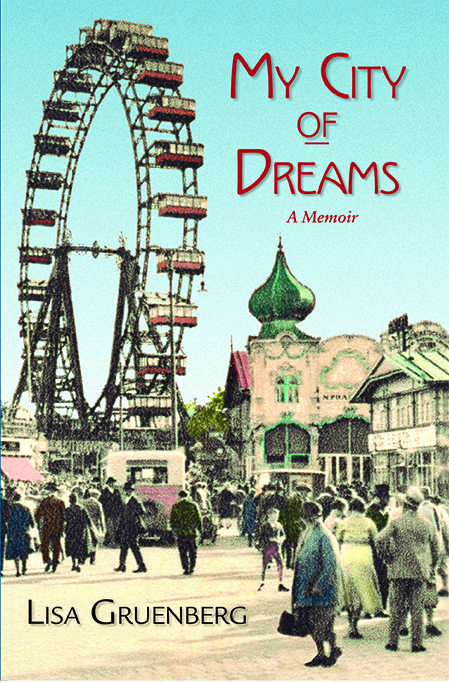
February 26, 2020
In this second-generation Holocaust memoir, Gruenberg, confronted with her elderly father's flashbacks, begins to inhabit the story of his sister Mia, who disappeared into Germany in 1941. After her father's death in 2005, Gruenberg travels to Vienna, Germany and Israel to explore these lost landscapes, and to trace the fates of Mia, their extended family, friends and neighbors. She interweaves her own story with theirs, linking them together with photographs, archival and primary source material, family letters, diaries, her father’s writing, his genealogy research, and the joyful tales he told her long ago.
Alex Beam, author of "Life and Death Inside America’s Premier Mental Hospital," writes : "The past is a foreign country; sometimes best left unexplored. But Gruenberg takes the trip, figuratively and literally, in an attempt to recreate her father's Vienna and the events that exterminated his sister, his parents, and 65,000 other Austrian Jews."
Dr. Lisa Gruenberg is a physician, medical educator, and writer based in Boston. Her essays have been published in Ploughshares, Vital Signs, Hospital Drive, The Intima, a Journal of Narrative Medicine, and The Michigan Quarterly Review. Her short story, "Keiskamma," won the 2012 Artist Fellowship from the Massachusetts Cultural Council. Her first book, "My City of Dreams," was published in September 2019 by Cambridge-based TidePool Press.
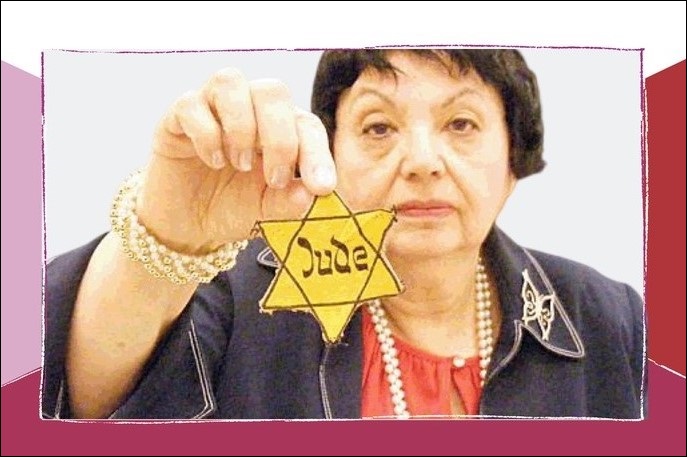
January 28, 2020
Join us to hear the moving and important testimony of Holocaust survivor Inge Auerbacher at Brandeis University. Last year, Ms. Auerbacher shared her account as a child survivor of Theresienstadt at the United Nations for International Holocaust Remembrance Day memorial ceremony. This year, she will be speaking at Brandeis University.
Following the event there will be a signing of Ms. Auerbacher’s Book, "I Am A Star-Child of the Holocaust." From the book: "We must speak out against evil and injustice. Let us build bridges of understanding and love to join mankind in every land. My hope, my wish, and prayer is for every child to grow up in peace without hunger and prejudice."
This event is co-sponsored by Together Restoring Their Names, the Center for German and European Studies, Chabad at Brandies, and Brandeis Hillel.
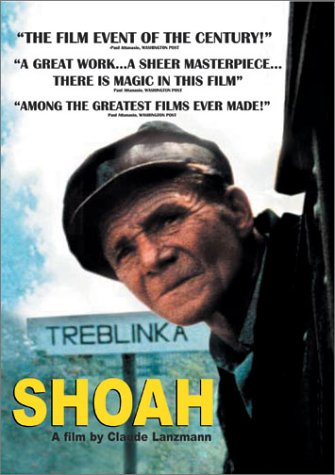
January 27, 2020
In this 9.5-hour documentary, surviving victims and perpetrators of the systematic extermination of Jewish people and other persecuted groups by the Third Reich relate the events of the Holocaust to audiences in their own words. In response to the call from the International Literature Festival Berlin (das internationale literaturfestival berlin, or ilb), Brandeis University joins a worldwide screening of Claude Lanzmann's Shoah.
Fall 2019
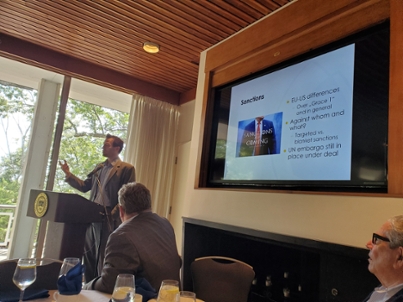
September 9, 2019
Dr. Cornelius Adebahr is a political analyst and consultant living in Berlin, Germany. His work focuses on European foreign policy issues, transatlantic relations and Iran.
Co-sponsored by the American Council on Germany, Eric M.Warburg Chapter.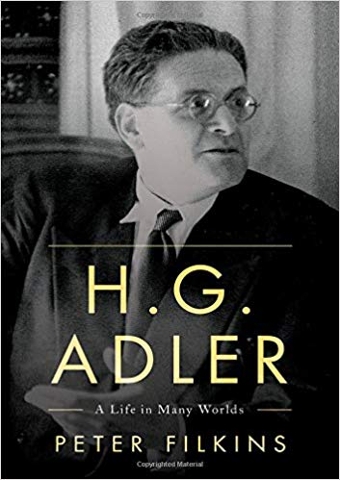
H.G. Adler (1910-88) lived at the center of his times and on their margin. A survivor of Theresienstadt, Auschwitz, and two other concentration camps, he chronicled his experience and the loss of others in two dozen books of seminal history, modernist fiction, formally intricate poems, and insightful essays.
Yet, despite close friendship with Leo Baeck, Elias Canetti, and Heinrich Böll, he remained a writer's writer, largely unknown and neglected. Thus, unlike with better known figures, the story of his life must be told through the times in which he lived, as well as how the same lived through him. On the publication of "H.G. Adler: A Life in Many Worlds," biographer and translator Peter Filkins discusses the intersection of biography and history in shaping the story of Adler's life and work.
Peter Filkins is an award-winning poet and translator. His authorized biography "H.G. Adler: A Life in Many Worlds" appeared in 2019 from Oxford University Press, and he has translated three novels by H.G. Adler, "Panorama," "The Journey" and "The Wall," as well as the collected poems of Ingeborg Bachmann, "Darkness Spoken." The recipient of fellowships from the National Endowment for the Humanities, the Leon Levy Center for Biography, the DAAD, and the American Academy in Berlin, he is the Richard B. Fisher Professor of Literature at Bard College at Simon’s Rock, and also teaches translation at Bard College.
Co-sponsored by the English Department, the History Department, the Tauber Institute for the Study of European Jewry, and the European Cultural Studies Program.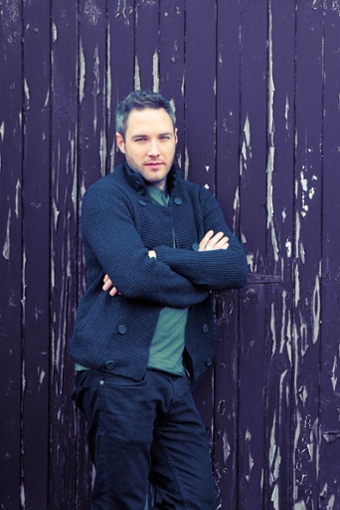
October 10, 2019
Why does Israel participate in a European song contest, and what does this contest say about how Israel and Europe relate to each other? How can popular culture inform how we study international relations? Join us to learn why this contest is crucial for understanding both Israel and Europe today.
Panelists
-
Dr. Shayna Weiss, in conversation with:
- Paul Jordan, aka Dr. Eurovision
- Dr. Hankus Netsky, the co-chair of Contemporary Improvisation at the New England Conservatory
Moderator
- Dr. Sabine von Mering, director of the Center for German and European Studies
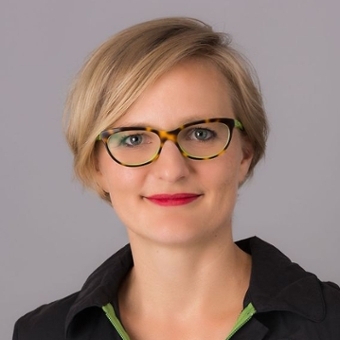
Franziska Brantner has been a member of the Bundestag for the German Green Party since 2013. She is currently the Green spokesperson for European affairs, and a member of the committee on foreign affairs. Before her time in the Bundestag, she was a member of the European parliament.
At Brandeis Ms. Brantner will talk about the current political challenges facing the European Union, from the impending Brexit to right-wing populist governments within the EU to the strained transatlantic relationship. She will also discuss the changing political landscape in Germany, where the Green Party has surged in the polls, and is currently on par with the conservative party of Angela Merkel.
Co-sponsored by the Heinrich Boell Foundation, Washington, D.C.
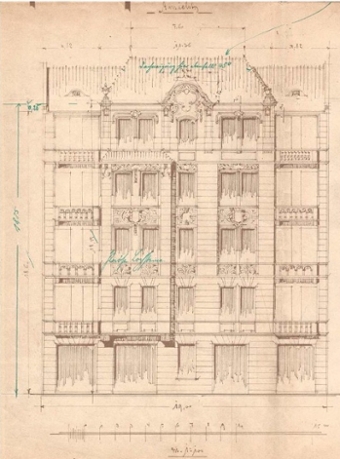
October 15, 2019
When two stolpersteine (stumbling blocks) were placed in front of the house next door in March 2018, Simon became curious about the history of his own house, where he has lived since 1999. He lives there now with his wife Britta and daughters Enna Lio (b. 2008) and Mila Bo (b. 2011).
After finding the old address books, he learned that the name of the owner of his building had been Isidor Lewy, who bought the building in 1904. He then learned from the manager of his building that Isidor Lewy’s grandchildren had sold the building to the current owners in the early 90s and he came across the name of Peter Gossels, a grandson of Isidor Lewy. So he sent him a first letter, hoping to find out more about the building's past. This was the beginning of an amazing journey into a whole book of stories of which none of the current tenants were aware.
The distinct Jewish past of this house, on a street which changed its name in 1974 from Lippehner into Käthe-Niederkirchner-Strasse (after a communist resistance heroine) but not its numbers, had been completely forgotten over decades, because no one asked about former layers of life within the old walls.
October 16, 2019
Britta Wilsmeier is a storyteller in Berlin who works with immigrant children in various schools.
She created a staged reading of Peter Gossels' story on June 16 at the local "Theater unterm Dach" together with Roman Ott.
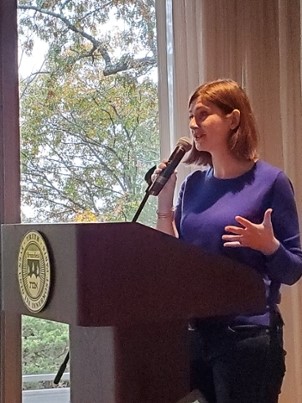
October 22, 2019
Olga Grjasnowa is the author of "City of Jasmine," a captivating story following a family in the Syrian Civil War. It offers real insight into the horrors of war, but also explores the humanity of the protagonists. Grjasnowa is one of the most talented young German authors today.
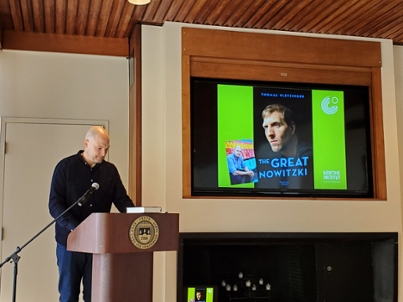
October 23, 2019
Co-sponsored by the Boston Goethe Institut and Brandeis Athletics.
October 28, 2019
Panelists
- Daniela Caruso (BU) is Professor of Law and Jean Monnet Chair, Boston University School of Law. Professor Daniela Caruso teaches Contracts to first-year law students and an upper-class course on European Union Law.
- Mai’a K. Davis Cross (Northeastern) is the Edward W. Brooke Professor of Political Science and associate professor of political science and international affairs. Professor Cross researches international cooperation, especially in the areas of European foreign and security policy, epistemic communities, crises, diplomacy and public diplomacy.
- Graham Wilson (BU) is the co-founder and director of the Boston University Initiative on Cities. His areas of specialization include American politics, comparative politics, business, and government and interest groups.
Moderator
- Lucy Goodhart (Brandeis) studies comparative and international political economy, analyzing the domestic politics of trade protection and coalition policy-making.
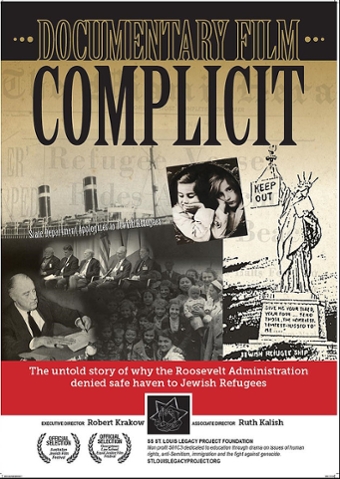
November 4, 2019
In commemoration of the Nazi pogrom known as "Kristallnacht" of Nov. 9, 1939, CGES invites you to join us for a conversation with SS St. Louis passenger and survivor Dr. Hans Fisher. We will also be showing a clip from Robert M. Krakow’s documentary "Complicit."
The SS St. Louis sailed from Germany to Cuba with 937 mostly Jewish passengers on board in May 1939 — only to be refused entry in Cuba, the United States and Canada. Upon its return to Europe, 254 of the passengers were later murdered in the Holocaust.
Hans Fisher, then a young boy, is among the surviving passengers and will share his experience of the journey and his survival.
Robert M. Krakow’s documentary film "Complicit" (2013) weaves the story of the SS St. Louis into the political drama unfolding within the Roosevelt Administration regarding its policies on the Jewish refugee issues during the wartime period. The film addresses the issues of immigration, refugee policy and the civilized world's response to genocide.
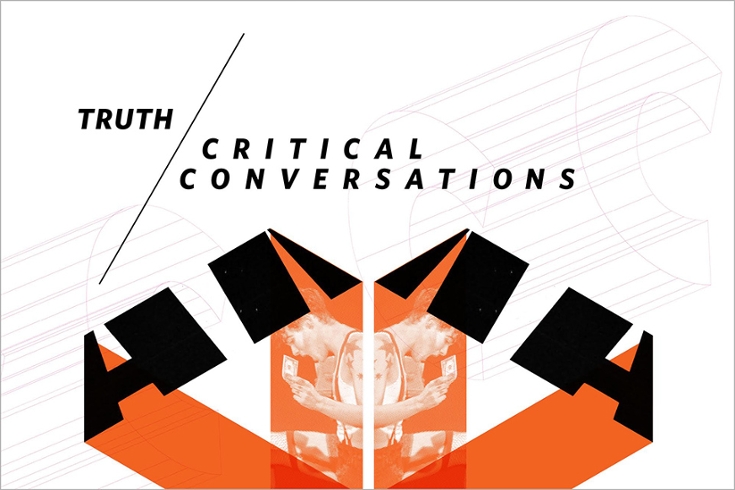
November 5, 2019
Experts were aware of the destructive consequences of human-caused climate change long before the general public was — or accepted this as fact. Even as the public has gradually come to acknowledge the effects of climate change, action to prevent large-scale loss of life and livelihoods has barely begun. How does such a collision of human knowledge and inaction arise? What individual and societal changes are necessary to reduce the impending disaster?
Participants
- Paul Miller, Associate Professor of Biology
- Sabine von Mering, Professor of German and Women's, Gender and Sexuality Studies, and Director of the Center for German and European Studies
Moderator
- Charles Chester, Lecturer in Environmental Studies
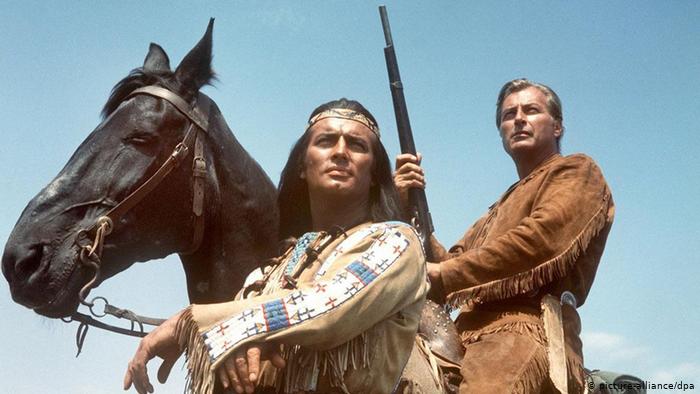
November 8, 2019
Every child in Germany grows up with Winnetou and Old Shatterhand (see picture), the fictional Apache chief and his German settler friend, invented by bestselling novelist (and criminal) Karl May in the late 19th century. Over 50% of Americans have German heritage, but Winnetou and Old Shatterhand are largely unknown in the U.S. Unfortunately, many Americans also know very little about real native Americans.
After having played the board game Catan (previously known as Settlers of Catan) in November and March without questioning its harmless depiction of the act of settlement, in this final panel of our Deutschlandjahr activities we take a serious look at the relationship between fact and fiction, at the history of German settlements in the Americas and at the lives of native Americans past and present.
Panelists
- Aaron Fogleman, Northern Illinois University
- Nia Holley, Nipmuc Nation
- Lisa Michelle King, University of Tennessee Knoxville (via Zoom)
Moderator
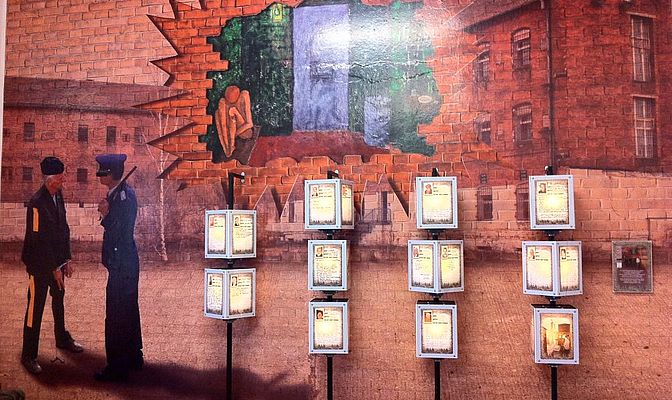
November 14, 2019
Thirty years ago on Nov. 9, 1989, the Berlin wall opened. Peter Keup describes what life in the GDR dictatorship was like. His father was a Communist, and after the Communist Party was made illegal in West Germany, he and Peter's mother moved to the GDR.
When Peter was 16, his parents applied to move back to West Germany but their application was denied. Ostracized from society and under constant surveillance, Peter discovered dancing and became a professional dancer.
In 1981, Peter attempted to flee. His plan was discovered and he was imprisoned for 10 months. Freed by the Federal Republic of Germany (through an arranged exchange), he moved to the west in 1982. Thirty years later, he discovered that his brother had worked for the Stasi (the GDR’s secret police).
November 23, 2019
A group of actors gather to tell the little-known story of the first genocide of the 20th century. "We Are Proud to Present..." takes place largely in a rehearsal room that descends from collaborative to absurd as a group of idealistic actors — three black and three white — attempt to recreate the extinction of the Herero people at the hands of their German colonizers. Along the way, they test the limits of empathy as their own stories, subjectivities, assumptions and prejudices catalyze their theatrical process. Eventually the full force of a horrific past crashes into the good intentions of the present, and what seemed a faraway place and time comes all too close to home.
Presenter: Katharina von Hammerstein, Professor of German Studies and member of the Human Rights Institute’s leadership team at the University of Connecticut, USA
News Update: We congratulate Katharina von Hammerstein for being named a Board of Trustees Distinguished Professor by the Board of Trusteesof the University of Connecticut.
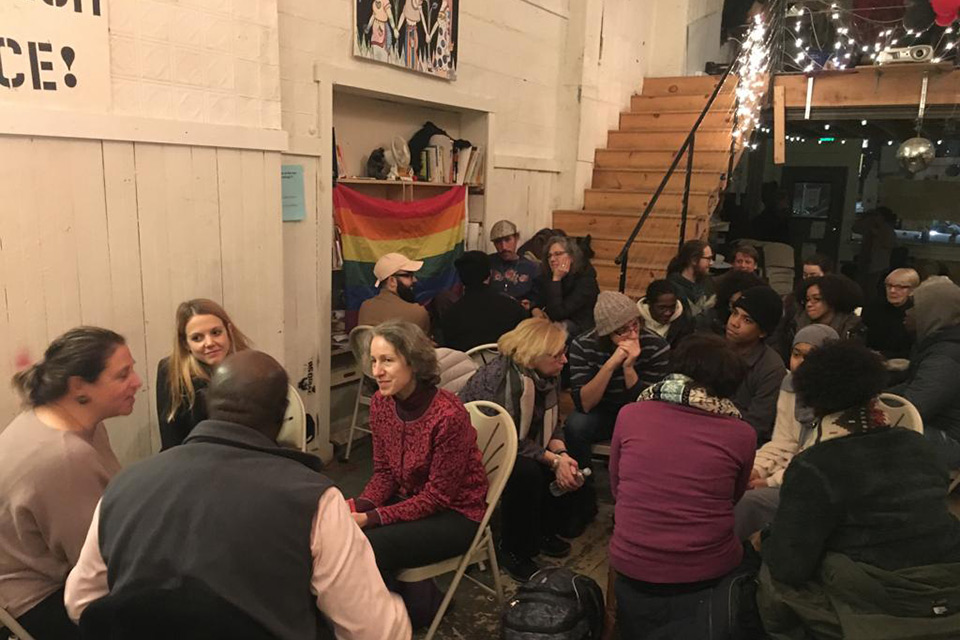
December 11, 2019
by Sasha Marianna Salzmann
A Staged Reading, directed by Guy Ben-Aharon
At MakeShift Boston 549 Columbus Ave, Boston, MA 02118
Aron, Nurit and Sedat grew up in Germany, but they don’t feel at home. They are caught between fatherland, mother-love, friendship and betrayal, past and future generations, struggling for where they belong. They appear funny and cool, until the very thin ice beneath them breaks…
- 7:30 p.m.: Staged reading of "Whitebreadmusic"
- 8:30 p.m.: Moderated dialogue
A cooperation between the Center for German and European Studies at Brandeis University and the Consul General of the Federal Republic of Germany in Boston.